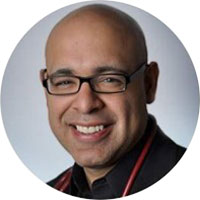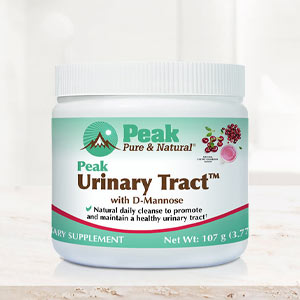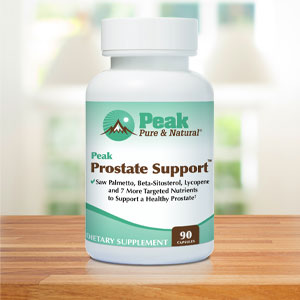Get Easy Health Digest™ in your inbox and don’t miss a thing when you subscribe today. Plus, get the free bonus report, Mother Nature’s Tips, Tricks and Remedies for Cholesterol, Blood Pressure & Blood Sugar as my way of saying welcome to the community!
Pygeum: Natural prostate support that stacks up

If you are looking for a natural supplement that supports and promotes prostate health, then cast your eyes on the South African herbal remedy called pygeum.
This remedy has ancient roots and has long been valued for its ability to manage bladder disorders, but scientific studies have shown it also has lots of potential for prostate health.
Here are some reasons why you may want to consider pygeum to support your prostate…
What Is Pygeum?
Pygeum supplements are made from the bark of the Prunus africanum tree, although both the tree and the extract are often referred to simply as pygeum. The active ingredients in the extract include phytosterols, the most common of which is beta-sitosterol. Other components in pygeum include triterpenes and compounds called ferulic acids.
You may recognize beta-sitosterol as another natural supplement that is beneficial for the prostate. It is found in stinging nettle and saw palmetto, two other herbal remedies shown to support prostate health. Phytosterols can inhibit the production of dihydrotestosterone (DHT), the hormone that plays a major role in the development of an enlarged prostate (also known as benign prostatic hyperplasia, or BPH) and in hair loss.
Although pygeum has been studied for a variety of ailments, it has demonstrated the most promise for the management of an enlarged prostate.
Pygeum And Enlarged Prostate
An enlarged prostate is a common condition caused by the noncancerous growth of the prostate gland as men age. Enlargement of the prostate can constrict the urethra, the tube that transports urine out of the body. Therefore, men who have an enlarged prostate often, but not always, experience urinary tract symptoms such as urinary urgency, painful urination, dribbling, the need to urinate often during the night and urinary frequency.
A number of studies have indicated that pygeum has properties that can help relieve symptoms of an enlarged prostate.
A few of the findings and reports on pygeum and BPH:
- A total of 263 men who had an enlarged prostate were given either 50 mg of pygeum extract or a placebo twice daily for 60 days. At the end of the study, the men who had taken pygeum extract had a “marked clinical improvement” in urinary tract symptoms. In fact, there was a 66 percent improvement in urinary symptoms in the pygeum group compared with 31 percent in the placebo group.
- A meta-analysis involving 18 trials evaluated a total of 1,562 men who had an enlarged prostate. Overall, the reviewers concluded that compared with placebo, pygeum offered men a “moderately large improvement” in urinary tract symptoms. Men who took pygeum were more than twice as likely to experience an improvement than men in placebo groups.
- In a comparison of pygeum with saw palmetto, another herbal remedy shown to be helpful in supporting prostate health and coping with an enlarged prostate, investigators reported on two studies: In one, 70 men with an enlarged prostate were given either 320 mg of saw palmetto for 30 days or 100 mg of pygeum plus 320 mg of saw palmetto for 30 days. In both studies, men experienced an improvement of about 50 percent in frequent urination and painful urination.
- In a review article in American Family Physician, the author noted that “limited evidence shows that the herbal agents saw palmetto extract, rye grass pollen extract, and pygeum relieve symptoms” of an enlarged prostate.
Taking Pygeum Supplements
If you are considering pygeum supplements, there are two options. One is to take the herbal remedy alone. The other is to take a supplement that contains pygeum along with other natural remedies for prostate health. In either case, the suggested dose of pygeum (standardized to contain 13 percent total sterols) is 75 to 200 mg daily as a single dose or divided into two equal doses.
Editor’s note: There are perfectly safe and natural ways to decrease your risk of blood clots including the 25-cent vitamin, the nutrient that acts as a natural blood thinner and the powerful herb that helps clear plaque. To discover these and other secrets of long-lived hearts, click here for Hushed Up Natural Heart Cures and Common Misconceptions of Popular Heart Treatments!
Sources:
A randomized, double-blind, placebo-controlled trial to determine the effectiveness of botanically derived inhibitors of 5-alpha-reductase in the treatment of androgenetic alopecia. http://www.ncbi.nlm.nih.gov/pubmed/12006122
Efficacy of Pygeum africanum extract in the treatment of micturational disorders due to benign prostatic hyperplasia. Evaluation of objective and subjective parameters. A multicenter, randomized, double-blind trial. http://www.ncbi.nlm.nih.gov/pubmed/1702916
Pygeum africanum for benign prostatic hyperplasia. Cochrane Databases of Systematic Reviews 2002; (1)CD001044. http://www.ncbi.nlm.nih.gov/pubmed/11869585
Serenoa repens in benign prostatic hypertrophy: analysis of 2 Italian studies. Minerva Urol Nefrol 2010 Dec; 62(4): 335-40. http://www.ncbi.nlm.nih.gov/pubmed/20944533
Edwards: Diagnosis and management of benign prostatic hyperplasia. http://www.aafp.org/afp/2008/0515/p1403.html
NBBS isolated from Pygeum africanum bark exhibits androgen antagonistic activity, inhibits AR nuclear translocation and prostate cancer cell growth. http://www.ncbi.nlm.nih.gov/pubmed/19771394
Papaioannou M et al. The natural compound atraric acid is an antagonist of the human androgen receptor inhibiting cellular invasiveness and prostate cancer cell growth. http://www.ncbi.nlm.nih.gov/pubmed/18627423














